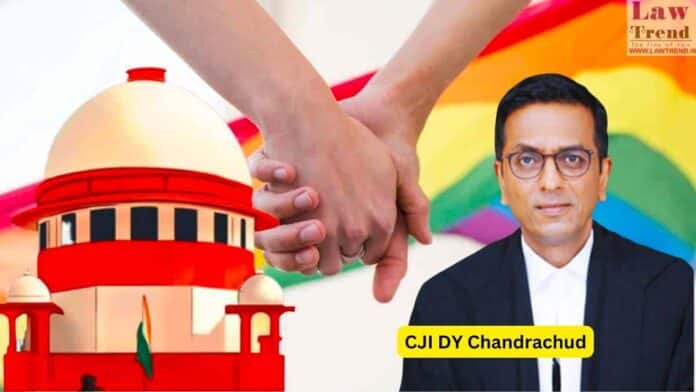Reflecting on the unsuccessful fate of the pleas for legal sanction to same-sex marriage before the Supreme Court, Chief Justice of India D Y Chandrachud said on Monday the outcome of a case is never personal to a judge and he has no regrets.
In an exclusive interview with PTI, the 50th Chief Justice of India (CJI)acknowledged that queer couples fought a “long and hard battle” for realisation of their rights, but judges do not associate themselves with a cause, and having decided the case now, he has left it at that.
“I leave it for the future of our society to judge which course to take,” he said.
On October 17, a five-judge constitution bench of the Supreme Court refused to grant legal recognition to same-sex marriage but pitched for equal rights to queer people.
All judges were unanimous in holding that it was within Parliament’s ambit to change the law for validating such union but, in a minority view, CJI Chandrachud and Justice S K Kaul, who recently demitted office, recognised the right of same-sex couples to enter into civil unions.
“One thing which our training teaches us is that once you deliver a judgement in a case, you kind of distance yourself from the outcome. Outcomes are never, in that sense, something which are personal to a judge. You decide a case based on your vision of the Constitution, on what you believe the vision of a just society for the future is, in constitutional terms, which is what I have done,” CJI Chandrachud said.
“I never have any regrets. Yes, I have been in the majority in many cases and I have been in a minority in many cases. But the important part about the life of a judge is never to associate yourself with a cause. Because it is only when you don’t associate yourself with a cause after a judgement has been delivered that you can truly be dispassionate,” he said.
“Having decided a case, I leave it at that. And I leave it for the future of our society to judge what course the society should take,” CJI Chandrachud said on being asked if he has any regrets about delivering the judgement.
CJI said he would not comment on the merits of the verdict.
“The LGBTQ community has fought a long and hard battle in the realisation of their rights. To a certain extent, there was a watershed in that evolution when the Supreme Court decided Navtej Johar (decriminalisation of consensual gay sex). The recent judgement was a judgement where the LGBTQ community sought a recognition of the right to marry. I am not going to comment on the merits of the judgement,” he said.
Justice S K Kaul, who was part of the top court bench on same-sex marriage issue and recently demitted office, told PTI last week that the case was not strictly legal in nature and involved social issues, and the government may introduce a law in future to grant them matrimonial rights.




